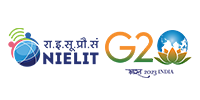Mechanical Workshop Practices
|
1. Course Objectives: The objective of a Mechanical Workshop is to provide a practical environment for students, engineers, and technicians to acquire hands-on experience and develop skills in the fabrication, maintenance, and repair of mechanical components and systems. To inculcate basic understanding of practices of mechanical workshops and provide hands on experience in preparing simple jobs in various shops like; Fitting Shop, Welding Shop, Foundry Shop, Machine Shop and Carpentry Shop. |
|
|
2. Course Outcomes: Upon successful completion of this course students will be able to |
|
|
CO-1: understand the safe operation of equipment and the correct use of personal protective equipment (PPE) to avoid accidents and injuries. CO-2: gain proficiency in operating various workshop tools and machines, such as lathe machines. CO-3: understand the sequence of operations involved in manufacturing components. |
CO-4: connect theoretical knowledge of design with practical prototyping, fabricating working models, or prototypes of mechanical components. CO-5: gain the technical proficiency, problem-solving abilities, and teamwork experience that are essential for success in the engineering field. |
|
3. Main Equipment’s Available In a mechanical workshop, a variety of equipment is required to perform different tasks related to the machining, fabrication, and maintenance of mechanical components. |
|
|
3.1. Safety Equipment: The use of safety equipment in a mechanical workshop is crucial for protecting workers from potential hazards and ensuring a safe and productive working environment. Workshops, due to the nature of the tasks involved (machining, welding, cutting, grinding, etc.), can expose workers to various risks such as flying debris, sharp tools, high temperatures, and harmful chemicals. Safety equipment is designed to reduce the risk of injury and prevent accidents. |
|
|
|
3.2. Measuring and Inspection Equipment: Measuring equipment in a mechanical workshop is essential for ensuring that parts are manufactured to precise dimensions, tolerances, and specifications. Accurate measurements are critical for achieving proper fit, functionality, and quality of mechanical components, especially when assembling parts or performing machining operations. |
|
3.3. Power Tools:
In a mechanical workshop, power tools are essential for increasing the speed, efficiency, and precision of various tasks, from cutting and grinding to drilling and polishing. These tools run on electric, pneumatic, hydraulic, or battery power, and they significantly reduce the manual labour required for different operations. |
|
|
|
3.4. Fitting Equipment: In a mechanical workshop, fitting equipment plays a crucial role in shaping, assembling, modifying, and repairing mechanical components to precise dimensions. Fitting involves operations such as cutting, threading, shaping, smoothing, and assembling parts with high accuracy. These tools and equipment are essential for ensuring proper fitment and functionality of mechanical assemblies and components. |
|
|
3.5. Welding and Joining Equipment: The welding shop in a mechanical workshop plays a vital role in the fabrication, repair, and assembly of metal parts. Welding involves joining two or more metal parts by applying heat and pressure, often with the addition of a filler material. It is one of the most important operations in mechanical workshops for tasks like structural assembly, part repair, and prototype creation. |
|
Casting and Moulding Equipment: The key tools used in sand casting include pattern-making tools, moulding tools (like flasks and sand compactors), core-making tools for internal cavities, and pouring tools like ladles. Understanding and using these tools correctly helps ensure high-quality castings, making sand casting a versatile and essential process in manufacturing components for mechanical applications, automotive parts, industrial machinery, and much more. |
Carpentry Tools: Carpentry tools are essential for various woodworking tasks in a workshop. They help carpenters and woodworkers to cut, shape, join, and finish wood accurately and efficiently. The proper use of these tools ensures high-quality craftsmanship and the creation of both functional and decorative wood products. |
|
|
Lathe Machine: A manual lathe is an indispensable tool in the workshop for a wide range of machining tasks, including turning, facing, drilling, threading, and more. Despite being less automated than CNC machines, manual lathes offer great flexibility, precision, and versatility. They are ideal for small-batch production, one-off custom parts, or prototyping in industries ranging from metalworking to woodworking. |
|
4. Suggestive List of Experiments |
|
|
1. To Study the Safety pracuation in Mechanical Workshop Practices. 2. To measure external and internal dimensions of machine parts using a Vernier caliper. 3. To understanding various measuring tools and techniques used in mechanical workshops. 4. To understand basic lathe machine To perform operations like turning, facing, parting, chamfering, and knurling. 5. To learn the arc welding process and with help of Arc Welding perform Butt and Lap weld joint in two mild steel plates. 6. To create a sand mould and cast a metal object. |
7. To create a basic butt joint where two pieces of wood are joined at their ends. 8. To make a dovetail joint, which is commonly used in drawer construction and cabinetry. 9. To create a strong mortise and tenon joint for furniture making or frame 10. To create box joints, which are often used in the construction of boxes, drawers, and cabinets. 11. To file a metal workpiece to the specified dimensions and finish. 12. To drill a precise hole in a workpiece using a drill press. 13. To tap a hole for the installation of a screw or bolt. |
|
5. Suggested Books: |
6. References: |
|
1. S. K. Hajra, Choudhary and A. K. Choudhary, Workshop Technology Vol. I, II, III, Media Promoters and Publishers Pvt. Ltd.Mumbai. 2. Manchanda, Workshop Technology Vol. I, II, III by India Publishing House, Jalandhar. 3. S. S. Ubhi, Workshop Training Manual, Vol. I, II, Katson Publishers, Ludhiana. |
4. K. Venkata Reddy, Manual on Workshop Practice, MacMilian India Ltd., New Delhi. 5. T Jeyaapoovan, Basic Workshop Practice, Vikas Publishing House (P) Ltd., Delhi 6. B. S. Raghuwanshi, Workshop Technology, Dhanpat Rai and Co., New Delhi. 7. H.S. Bawa, Workshop Technology, Tata McGraw Hill Publishers, New Delhi. |
|
FACULTY COORDINATOR: Dr. L. Shyam Sunder Singh LAB INCHARGE: Mr. Mukul Sharma |
LAB CO-INCHARGE: Mr. Hanuman Saini PLACE: Room#10, Ground Floor, WORKSHOP@NIELIT |


















